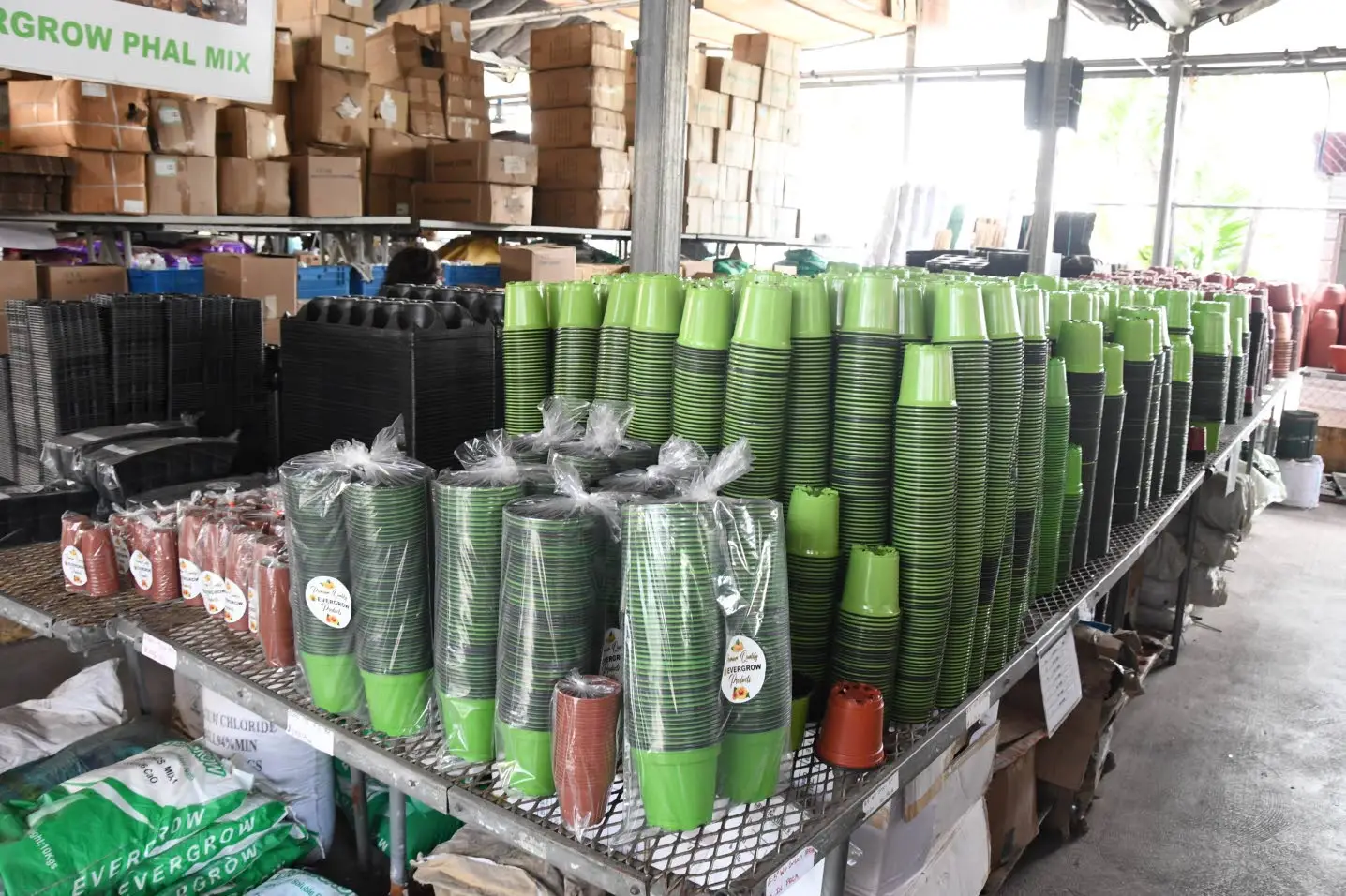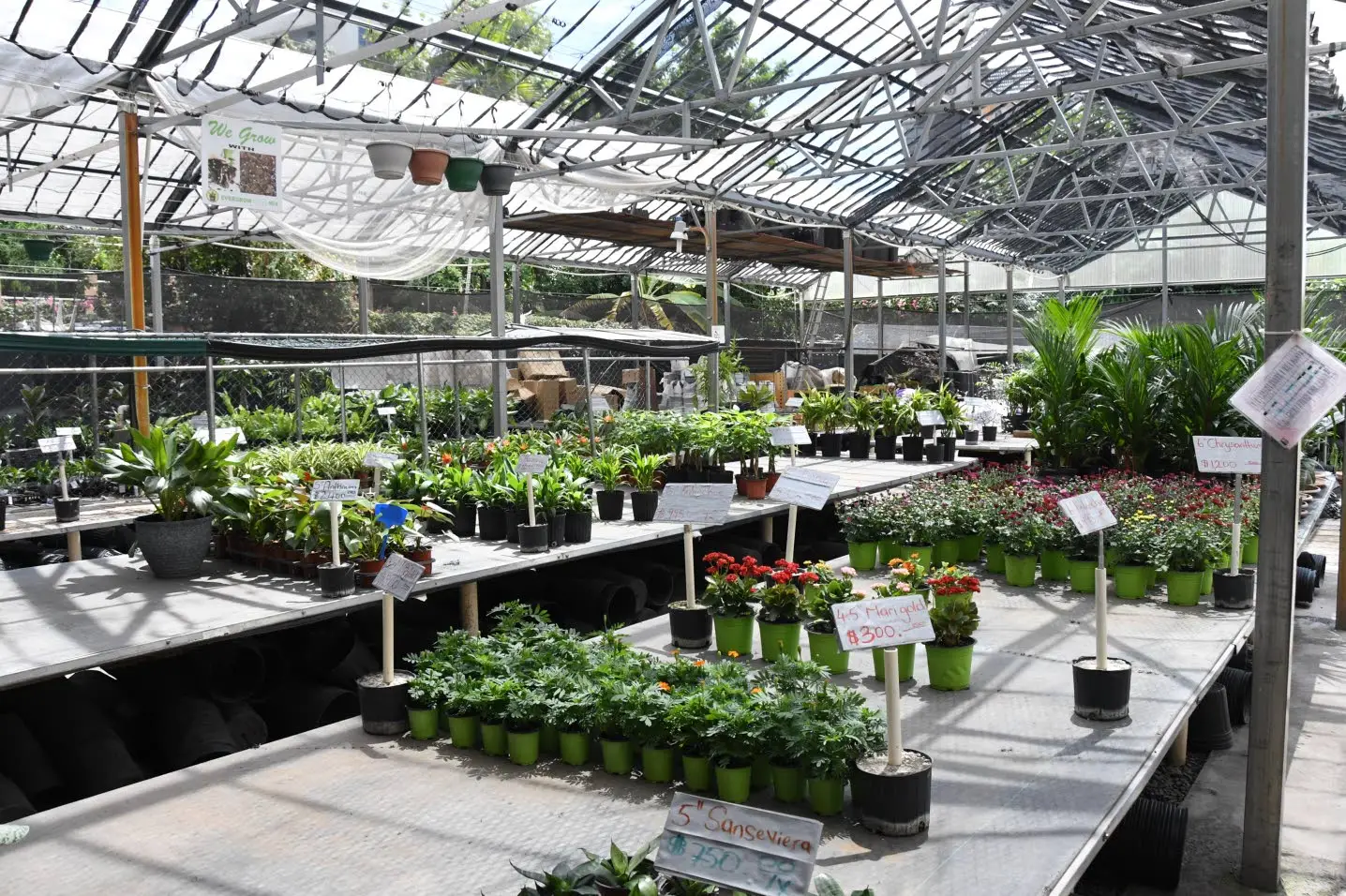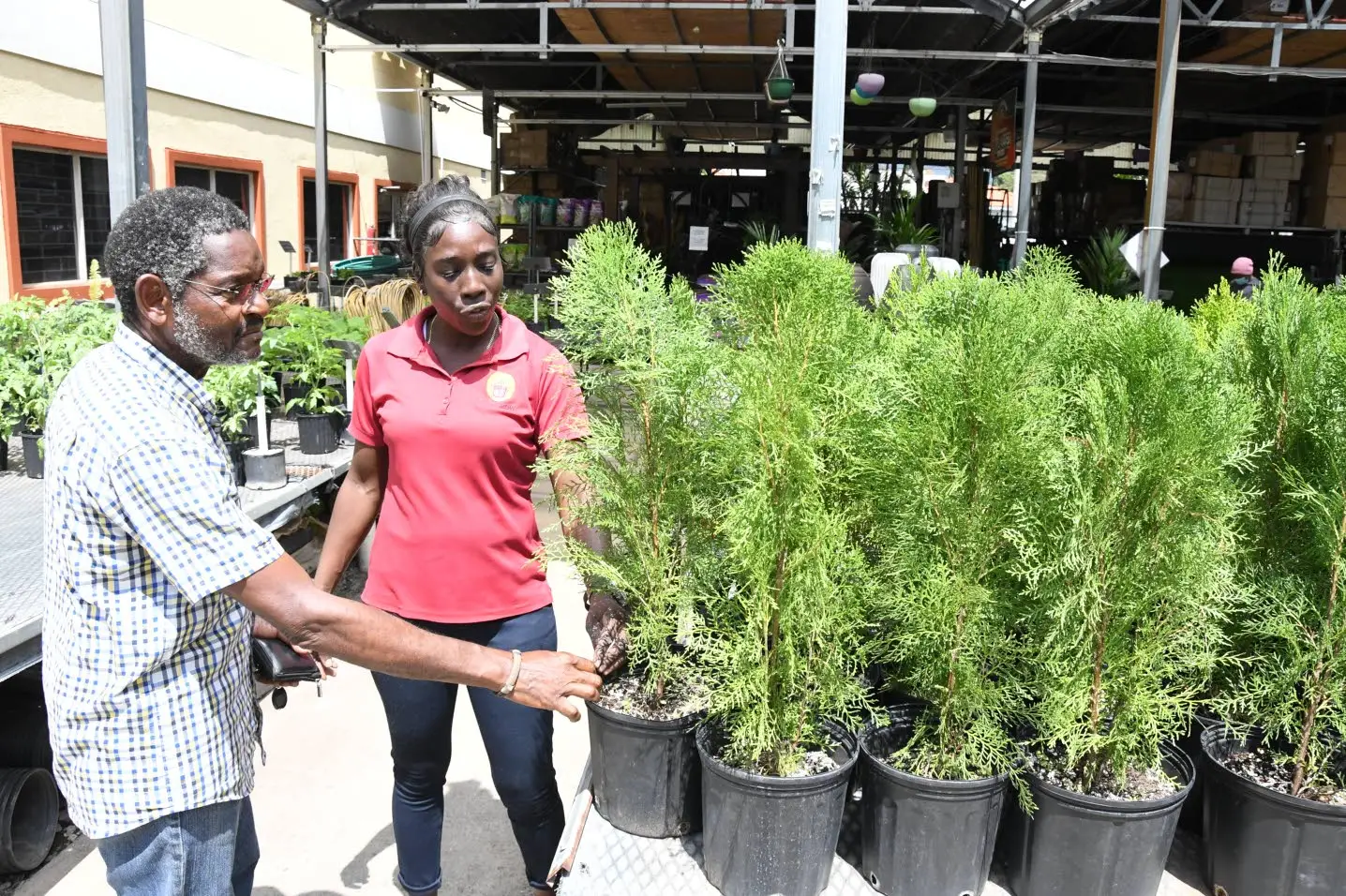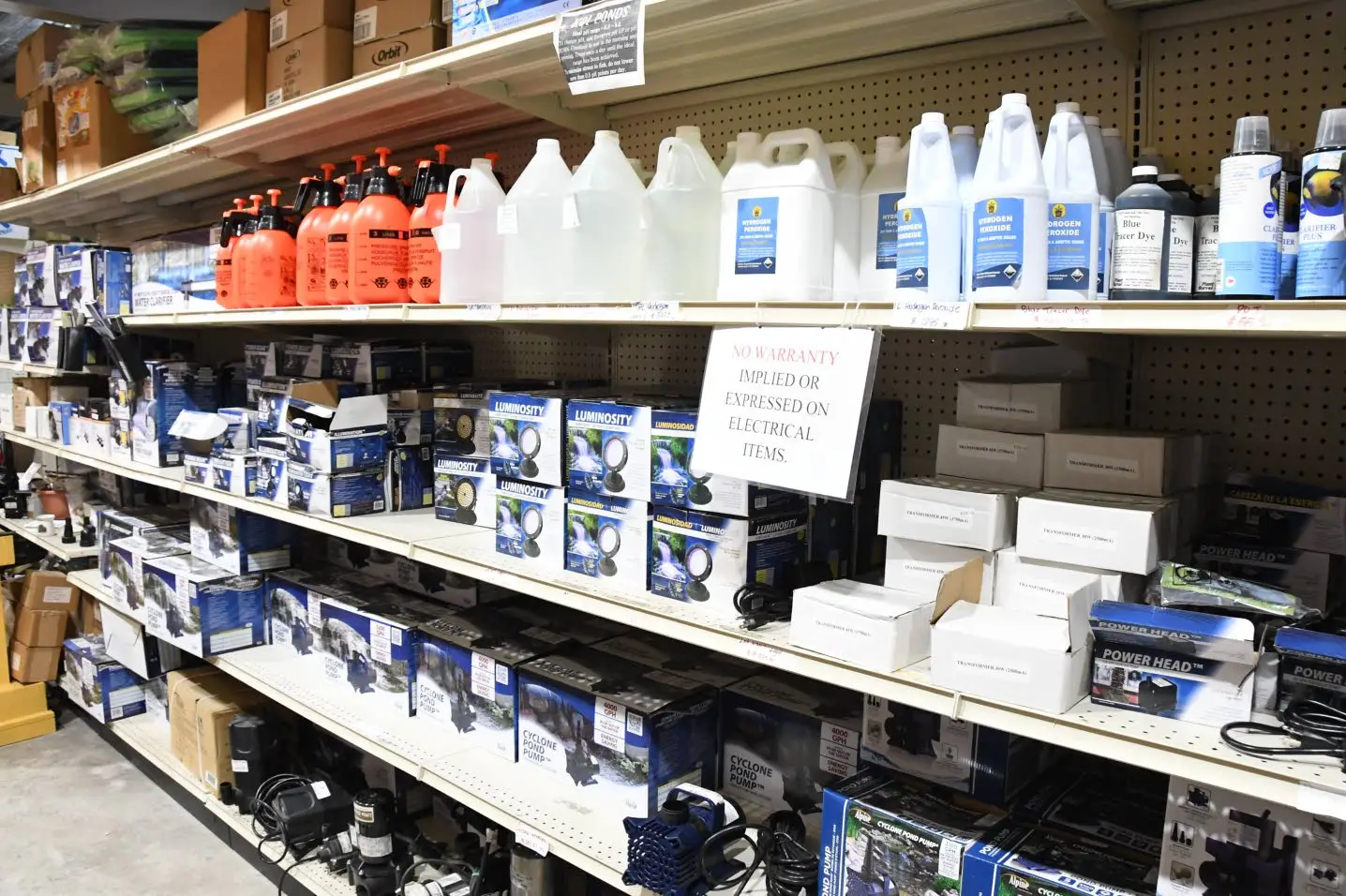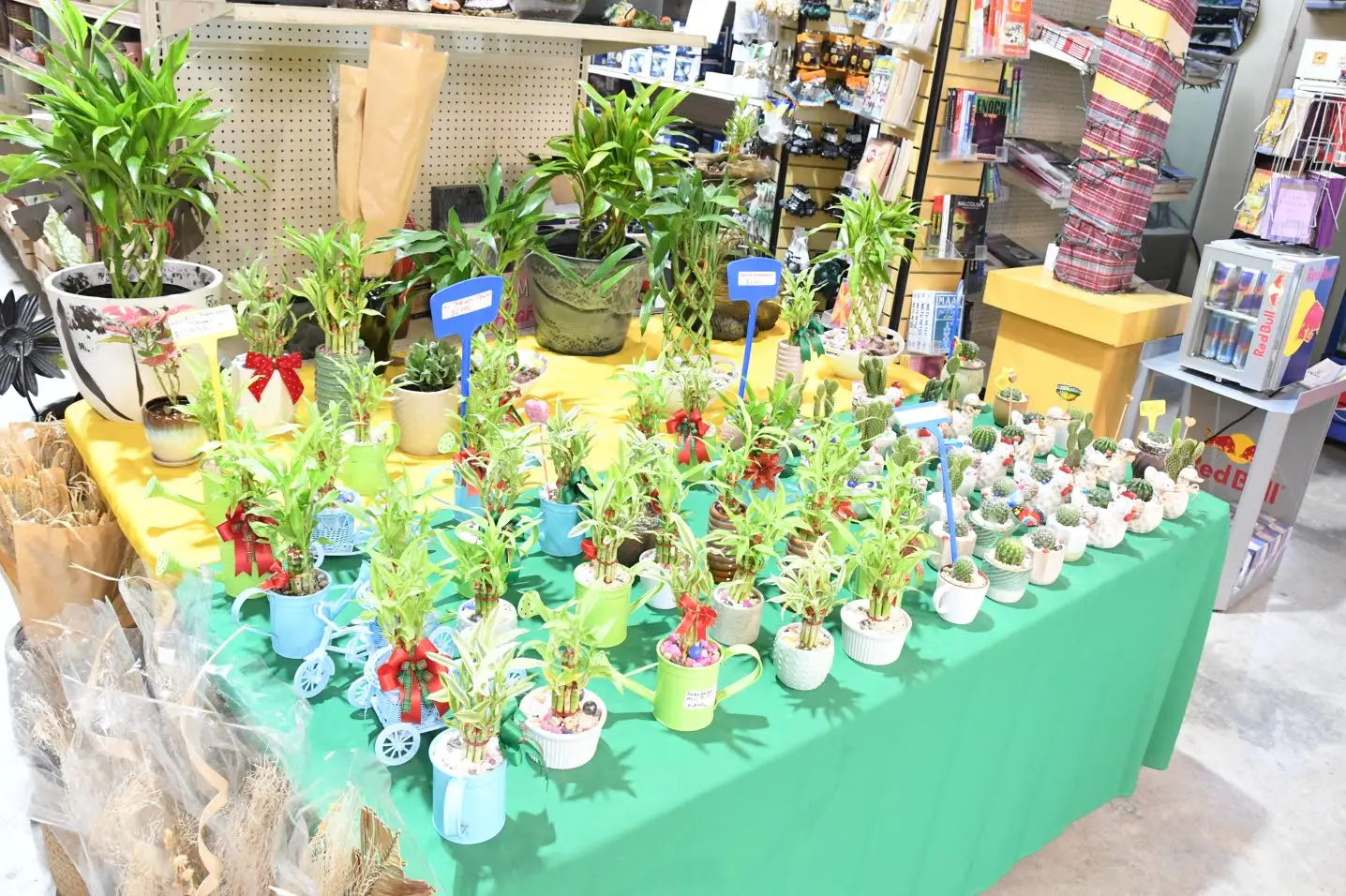
Cultivating Jamaica’s horticultural future
The evolution of Evergrow Garden Centre
AS Jamaica’s agricultural sector grapples with climate volatility and technological disparities, Evergrow Garden Centre emerges as a linchpin in bridging traditional practices with modern horticultural demands.
Founded in 1980 by plant pathologist Burrell Scarlett, the company has navigated four decades of market shifts, hurricanes, and production challenges to become a cornerstone of Jamaica’s horticultural supply chain. This is the story of how a self-proclaimed “peasant boy” transformed childhood curiosity into a technical enterprise supporting growers from backyard gardeners to commercial agribusinesses — and how it now confronts the sector’s most pressing existential threats.
Scarlett’s journey began far from corporate boardrooms, in the red clay soils of his grandmother’s farm. “I was the little boy who sits under the tree,” he reflects, recalling formative years watching crops spring from earth that sustained his family. These early experiences seeded both technical curiosity and pragmatism — qualities that would later define Evergrow’s operational ethos. By age six, Scarlett had declared his ambition to become a “plant doctor”, a vision that crystallised during university pathology studies in the late 1970s.
“Unknowingly I went through high school specialising in the agricultural sciences, and, same in university where I specialised in botany and chemistry, and it was only when I was in university and doing my pathology courses that I realised that I was fulfilling that dream of being a plant doctor, unknowingly,” Scarlett told the Jamaica Observer.
This fusion of academic rigour and hands-on agricultural understanding became Evergrow’s differentiator. After brief employment at the Sugar Industry Research Institute, Scarlett launched Everlasting Flowers in 1980 — an artificial floral venture leveraging his chemistry expertise to bleach and colour preserved botanicals. When synthetic florals fell from fashion, this adaptability resurfaced, propelling Scarlett’s pivot towards fresh plants and landscaping services.
“I entered with domestic landscaping — home services — then very quickly we moved into specialising into industrial and commercial services — large projects — and we were contractors to quite a number of large companies in this country for many years,” Scarlett continued.
From Landscaping to Technical Supply Chain
The transition to Evergrow Garden Centre marked a critical inflection point. Recognising systemic gaps in Jamaica’s horticultural infrastructure, Scarlett shifted focus from ornamental plants to technical supplies: irrigation systems, growing media, fertilisers, and greenhouse materials. “We needed supplies to grow our own plants for landscaping and the hard goods to support those projects,” he explains. Today, hard goods constitute 80 per cent of inventory, positioning Evergrow as Jamaica’s primary horticultural solutions provider rather than mere plant retailer.
“Evergrow Garden Centre is not a plant shop, it’s not a flower shop, it’s a horticultural supply store where we supply both hard goods and plants, so hard goods is about 80 per cent of our business, 20 per cent only is plants,” he added.
This technical emphasis addressed a crucial market need. While competitors proliferated in plant sales, few offered Scarlett’s combination of agronomic expertise and supply chain reliability.
Navigating Competitive Pressures
Jamaica’s horticultural inputs market has grown increasingly crowded, particularly in agrochemicals. Yet Evergrow maintains market share through knowledge-based differentiation. “We ensure growers understand product applications for maximum efficacy,” Scarlett notes. This technical advisory role mitigates risks in a sector where improper chemical use can devastate crops, fostering client loyalty amidst price competition.
He said he has seen it all over that time.
“I think the opportunities are still there. I think more people, more homeowners are paying a little more attention to their properties in terms of the aesthetics and even a value-added for proper landscaping and beautification of your properties. It is claimed by the real estate experts that a proper well-done landscape property attracts some 20 per cent over the same property with not a great landscape.”
He said that gain comes with homeowners spending about 1 per cent of the value of their property on landscaping.
Contrary to retail trends towards decentralisation, Evergrow maintains a single Kingston location. Scarlett defends this model: “Our distribution channels don’t support widespread delivery, but we ensure comprehensive stock”. The approach prioritises quality control and expert staffing — critical when advising on technical products like hydroponic nutrients or climate-resilient greenhouse designs.
This philosophy extends to inventory decisions. The company stocks only products their team can knowledgeably support, with staff undergoing manufacturer training before introducing new agrochemicals. Such rigour explains Evergrow’s endurance where competitors chasing market breadth often falter.
Technological Adoption Barriers
Scarlett identifies Jamaica’s lag in protected cultivation as a critical vulnerability: “Agriculture is technologically driven, yet we’re still growing mostly outdoors without environmental controls”.
While global counterparts leverage automated greenhouses for yield optimisation, Jamaican growers face hurricane risks deterring infrastructure investments. Evergrow’s response — modular greenhouse kits designed for rapid disassembly — epitomises its approach of adapting global best practices to local realities.
“I think we are somewhat not abreast of the technology and I think horticulture is and indeed agriculture is technologically driven and I think we just need to pay a little more attention to technology and I speak specifically to horticulture croppings,” he outlined.
Scarlett said not many investors get into operating greenhouses because of Jamaica’s position in the hurricane zones where these structures are easily ripped apart by strong winds.
“But even in open fields I believe that there’s still an insufficiency of the application of technology and I talk about say crop nutrition. There is still not enough being done to technically look at and apply crop nutrition technology.”
He said it irks him when farmers produce and do not have a market for their crops and calls for measures to be put in place to deal with issues of agricultural produce gluts.
But where does he sees Evergrow in the future?
“I am not at any time visioning any monopoly of the supply business, so we would want to continue to operate in our areas of competence and to have the sufficiency of supplies in the areas that we are competent to manage. We are satisfied we are fed by finding solutions to our customers, growers needs so it makes us happy when we can find a solution to your growing needs.”
